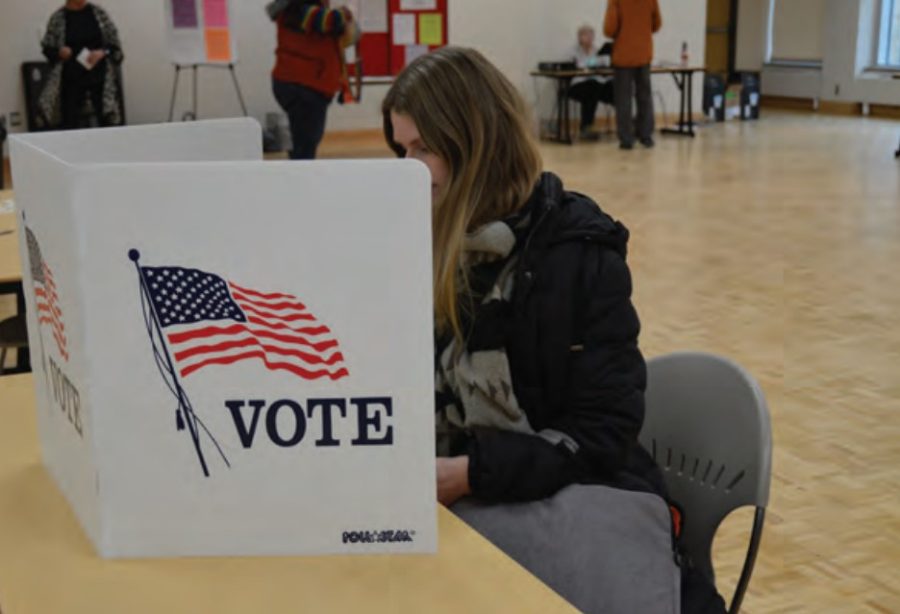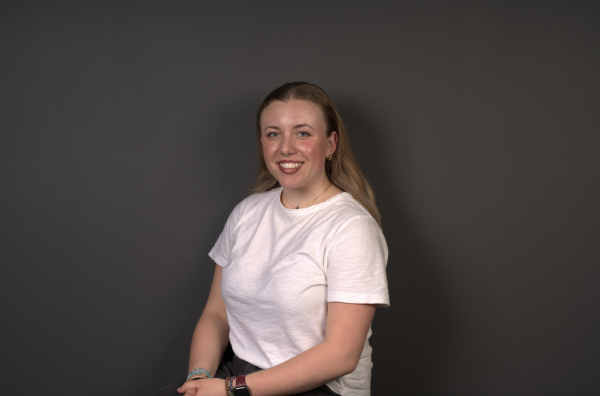*Editors note: The DNC invited student journalist to apply for press credentials this year while the RNC did not. The Advance-Titan is not affiliated with any political party or candidate.*
“I believe that young people are at the forefront of this [election],” Tylik McMillan, the Democratic National Convention’s (DNC) youth director of coalitions said during a panel discussion about mobilizing youth voters at the DNC on Tuesday. \
“I believe that when we look at movements across time, young people have always been at the forefront of movements,” McMillan said. “Young people have always been the ones to bring bright ideas, innovative ideas, innovative ways to bring fresh perspectives..”
McMillan and four other speakers dove head first into the importance of utilizing young adult voices during the election season in what they called “From Apathy to Action: Mobilizing the Youth Vote.”
McMillan, who also functioned as the MC of the panel, began the conversation by asking what causes apathy amongst young voters. Mary-Pat Hector, the CEO of Rise Free, said young people, especially young people of color (POC), feel ostracized.
“There’s a lot of discussion around black youth, specifically young black men, and their disillusionment with the political process,” Hector said.
She said that young people don’t feel like they’re part of the system because they don’t see themselves represented in the political world.
“Being on stage is important,” Hector said.
The internet is helping to lessen young voter apathy. Hector said that young people are beginning to see more of themselves in their political messengers.
“We’re in a historic moment of youth engagement across the country,” Hector said. “We had the three highest youth voter turnouts in the last few elections … we would not have elected Biden/Harris had it not been for historic youth voter turnout.”
UW Oshkosh’s Director for the Center of Civic and Community Engagement (CCCE) Mike Lueder said a lot of students feel like they just don’t need to care.
“If you look at it from a different angle, who is highly engaged in the process?” Lueder said. “It’s people like me. Working adults who have homes, who have families, who have kids in school districts, who pay taxes and really care about what their money is being used for.”
He said that most college students are in the complete opposite scenario since they’re often not making much money and not being taxed too highly.
“I don’t think it should be this way by any means, but it’s just naturally what happened,” Lueder said.
All four panelists have dedicated hours of time to educating the youth on why they should care about who’s in office, and who’s representing them.
Nick Guthman, co-founder and co-president of Our Blue Future, said that’s the beauty of the work they’re doing.
“We get to create spaces for people to come together and have really positive experiences in political organizing so that they stay dedicated to this work for the rest of their lives,” Guthman said.
Guthman said he sees “enormous youth engagement.”
“When we talk to them about what’s at stake, when we talk to them about which candidates are fighting for our futures, they go out and vote,” Guthman said.
“I think a lot of it is about giving people permission to take action in a way that empowers them and makes them feel like they’re actually changing the community that they’re a part of,” Jackson Hurley, the national political director and senior advisor at Voters of Tomorrow, said.
Hurley said a lot of people don’t because that’s what they’re comfortable with. He said the value of organizations like Voters of Tomorrow, Nextgen and Rise Free, and platforms like the DNC giving young people voices shows that “the conversation has shifted from young people don’t vote, to young people are the [ones] who create change for young people.”
The other speakers on the panel echoed Hurley’s statements adding that young people communicating with other young people and authenticity are also helping mobilize young voters.
“We invest in our young staff that have innovative ideas,” Cristina Tzintzún Ramierz, the president and executive director of Nextgen America, said.
On UWO’s campus, there are three recognized political organizations: the College Democrats, Oshkosh College Conservatives and the Oshkosh Student Socialist Association (OSSA). Lueder said that’s a good number for a campus of that size.
“[The] bigger election year[s] generally drive more engagement to those [groups],” Lueder said.
Lueder works for the CCCE, a bipartisan group focused on informing students about elections when they’re happening.
“We focus on informing about voter registration, how to register, where to register, where to vote, all that kind of basic stuff,” Lueder said. “[We] also promote, what I believe are, some really great resources to help students figure out what political party they may be.”
This fall, the CCCE will continue to help inform students by providing them fair, balanced, nonpartisan information in order to vote successfully on Nov. 5.
The panelist encouraged students to go out and talk to their friends, family and community members about the upcoming election and to post about participating in politics and to make a voting plan for Nov. 5.
For information on voter registration and polling locations visit myvote.wi.gov/en-us/. To keep up with the CCCE and learn more about their events on campus, visit www.uwosh.edu/community-engagement/.








